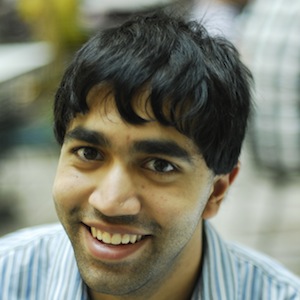Every organization is constrained by limited resources. Organizations have long worked to find ways around these constraints and expand their capacity, whether through increased revenue generation, grant opportunities, technological advancements, or other innovations.
At the same time, billions of students around the world are creating new knowledge every day. In physical classrooms and virtual ones alike, children, adults, and professionals of all stripes are learning and sharing information. Many of these students are hungry to apply their education to real-world problems, but strikingly few have had the chance: a May 2013 Gallup poll found that even among young adults in the U.S., only 29% had solved a real-world problem in their final year of schooling.
At Coursolve, we think it’s time to change that. Over the past few months, we’ve worked with two massive open online courses (MOOCs) to explore the potential of connecting these two groups – organizations seeking additional capacity and students seeking real-world impact. We saw learners in a business strategy course work with companies and nonprofits from around the world to revamp business models, increase nonprofit accountability, analyze new markets, and more. We then watched as data science students tackled public and private datasets to flag outlying care profiles at a Dutch hospital, analyze tweet sentiments about the U.S. healthcare system, and calculate the popularity of segments of songs.
In these collaborations, students used their learning to make an impact. Some brought decades of prior expertise, others brought domain-specific knowledge, and still others were able to contribute through their sheer passion and hard work. Organizations and students alike overwhelmingly reported positive experiences, and in interviews, many nonprofit and corporate professionals said they personally grew from interacting with students and managing global collaborations. Most promisingly, a wide majority of learners felt that such real-world projects were important to include in future courses.
We’re now launching a platform to help students, instructors, and organizations do just that. Starting next week, we invite you to visit http://coursolve.org/, register for an account, and start connecting with lifelong learners around the world. We’re grateful to again partner with Foundations of Business Strategy, a six-week MOOC offered by Professor Michael Lenox at the University of Virginia’s Darden School of Business. Organizations will be able to post business-related needs for students to address through a final case study. When the course was first offered in March, over 400 analyses were submitted to 100 organizations, a majority of which indicated a desire to problem-solve with students again. (We found that many students were excited to reach out early; accordingly, for this run, we recommend posting needs by the course start date of September 2.)
Today’s challenges are too complex to solve on our own – but who says we need to? If your nonprofit is looking to enter new markets, re-allocate staff to new projects, or learn about other organizations doing similar work, this is your opportunity to seek support from motivated students hailing from every corner of the globe. Let’s make the most of our collective abilities and start learning from the world, for the world.
Amit Jain is the lead researcher at Coursolve, which connects academic courses to organizations to empower students to solve real-world problems. He is also an associate teacher of middle school math and science at a charter school in Boston, MA.
Filed under: Big Data ![]()







